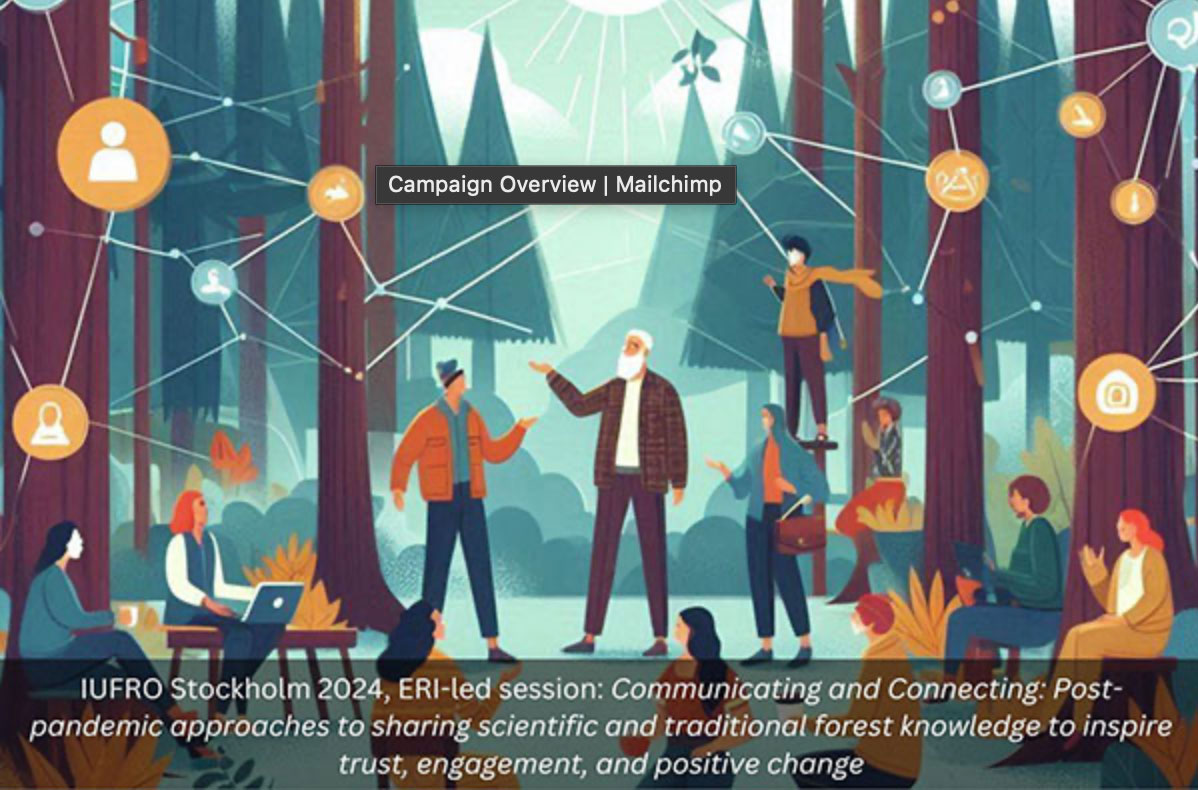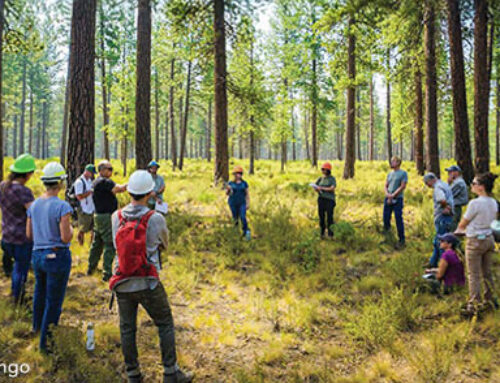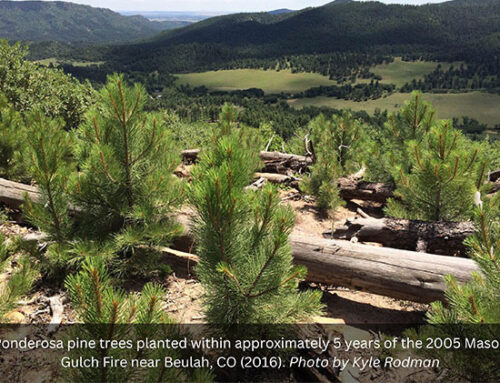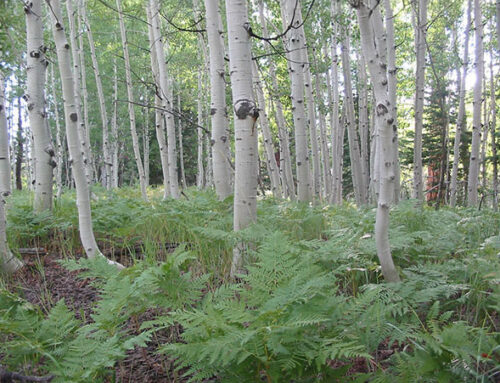2024 IUFRO World Congress: Communicating and Connecting
This week, ERI staff are contributing to the International Union of Forest Research Organizations World Congress 2024, in Stockholm, Sweden! Amy Waltz, ERI’s Director of Science Delivery, worked with Rocky Mountain Research Station, and an international cohort of forest communicators to develop the session: Communicating and Connecting: Post-pandemic approaches to sharing scientific and traditional forest knowledge to inspire trust, engagement, and positive change.
The COVID-19 global pandemic severed some connections but introduced newer tools and technology that change the scope of our communications. The pandemic also underscored the high value of connection. Today’s scientific delivery mechanisms are abundant, ranging from memes and YouTube videos to published papers and systematic reviews. Science misinformation is also more prevalent and can influence public and forest stakeholders’ perceptions of what is real. What inspiration have we gained through this experience that is helping us pivot to and from hybrid environments into the future of communication? This session is committed to expanding the opportunities for science exchange and delivery in ways that share and promote high quality science to diverse audiences. We highlight the tools and case studies for sharing rigorous science, while also include techniques that help diverse audiences identify misinformation, with a goal to increase science literacy.
The field of science translation and communication is evolving into an action-oriented, user-centric approach incorporating the scientific community and knowledgeable stakeholders. The ERI was excited to work with such a diverse team representing five different continents/regions of the world.
IUFRO VIDEOS: Shifting Paradigms in Forest Restoration: 20 years of partnerships and actionable science toward a new fire future
The ERI was congressionally authorized 20 years ago to bridge the gap between science and the application of science into forest management techniques that reduced fire hazards and restored forests. The ERI’s mission has varied little in two decades, and we continue to pursue the goal of accelerating restoration at the scale of wildfires, even as our western US wildfires have grown and our climate change impacts have increased. However, the science questions—and possible solutions—have changed as early 2000s data and information gaps were filled over time.
Our story is how we’ve contributed to shifting paradigms in forest restoration and how 20 years of partnerships and actionable science is leading us toward a new fire future. The videos will be released this week at IUFRO, in Stockholm, Sweden.




